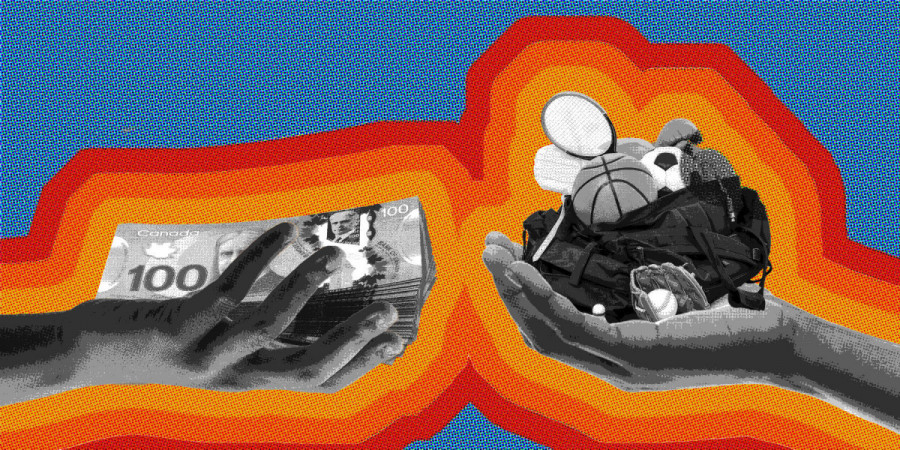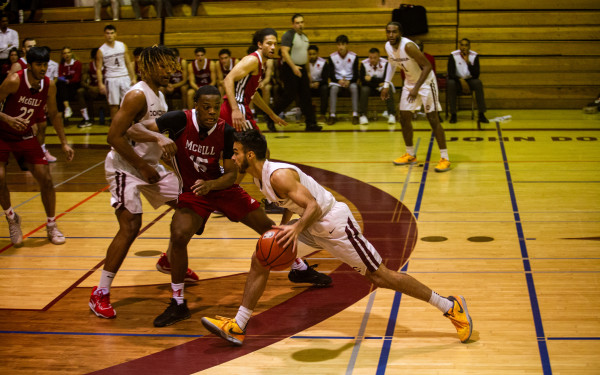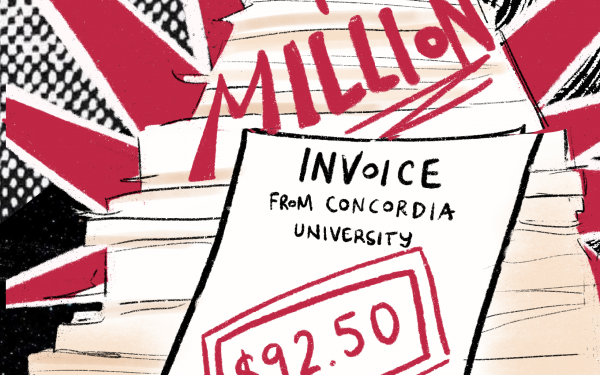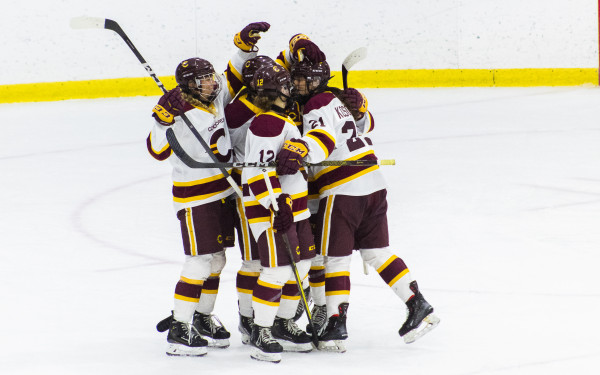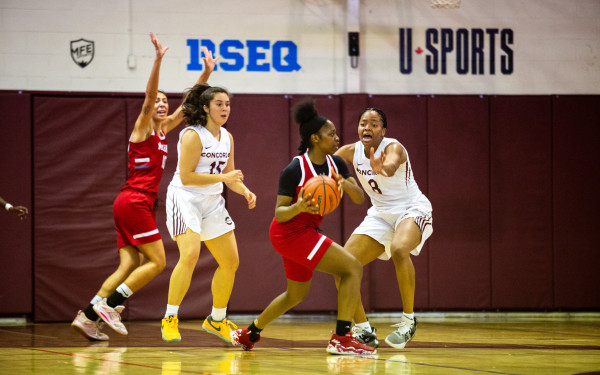Student-athletes navigate hurdles beyond the field
Examining how pay-to-participate fees and expenses pile up
Dawson Pierre is on the doorstep of achieving his lifelong dream. From strapping on his football pads at seven years old to wrapping up his career playing safety for the Concordia Stingers, he is ready to transition to a professional level.
“Just to say you’re going to play professional, it’s like you’re reaching the one per cent,” he said.
Pierre has showcased his talents at combines, most recently in Texas on Jan 5. However, Pierre initially assumed he couldn’t make the camp.
He had mistakenly overlooked the cost of a hotel room, which is not provided by the camp. The weekend before he was set to depart for Texas, he was sure that he couldn’t afford to go.
But Pierre understands financial hurdles well. The all-star safety from Longueuil has helped his mother—with whom he lives—to cover expenses. On top of dedicating countless hours to school and athletics, he works at the REACH school in St Lambert, Que. as an attendant, and was on strike with fellow education workers this past winter, further hindering his income.
Thankfully, along with some money pooled from a GoFundMe campaign and family members, he was able to make the combine.
“A lot of [Canadian student-athletes], after the season, we work full-time jobs, or even during the season,” he said. “A lot of my friends, after the game, go to work as bouncers.” This, Pierre reminded, is on top of ending a game at 6 p.m., working the night, then attending classes the next morning.
Pierre was recently offered an invitation for the CFL Combine in March, held in Winnipeg, Man. His GoFundMe has a goal of $10,000, estimated to cover travel, hotel and participation fees. He was offered the invitation to the combine as a standout athlete. Throughout this past season with the Stingers, Pierre totalled 20 tackles in six games and was named to the Réseau du sport étudiant du Québec all-star team in 2022.
Jonathan Collin, a former McGill football player, is also very familiar with the expenses and commitments student-athletes have to endure. Collin joined Fondation Aléo—a foundation that provides financial aid to Quebec student-athletes—in 2014 after completing his degree in education. He currently works as the coordinator of the bursary program. Collin says expenses go beyond standard fees for participation.
“Access to infrastructure, but also quality infrastructure, is a huge barrier,” said Collin. “If you’re an athlete who’s good at karate, for example, and you live in Lac-St-Jean, pursuing your sport is extremely difficult […] In order to continue, you have to be financially able to move to a different region or travel between them.” Collin confirmed that the majority of requests come from lower-income families in the regions outside Montreal, but “for the most part, it’s across the board. Everyone is hurting.”
Dominique Grondin-Allard was a university athlete in the United States. Originally from Boisbriand, Que., she committed to the University of Louisiana Monroe on a scholarship for waterskiing, a sport which she says is expensive in itself.
“To get in [to the sport], your family has to at least be a little comfortable [financially],” she said. “But, once you get in, you realize how expensive it actually is. Then you have two types of people, those whose families can afford everything, and then you have the ones who work at different ski schools in exchange for a space to train.”
Grondin-Allard’s scholarship did not fully cover tuition, cost of living and other fees. As a graduate student, she had to dedicate hours working on campus to make ends meet. In doing so, she was limited to work 20 hours a week by the university at an hourly rate of $7.50 USD. Needless to say, making ends meet was frequently challenging, relying on extra cash-paying jobs such as tutoring.
“You’re at an age where you feel like a financial burden to your parents,” said Grondin-Allard. “I’m over 20 and still calling my parents a couple of times a year being like ‘I’m too broke. Can you help me out?’ it’s not really doable.”
Although the financial barriers feel insurmountable, and elite sports can be a deterrent because they are “filled with problems,” Collin remains optimistic.
“What we do [at Aléo], I believe profoundly in. Sports is a school of life that is very difficult to replicate and that there’s an enormous value in combining your sport and your studies and the rest of your life.”
This article originally appeared in Volume 44, Issue 8, published January 16, 2024.

